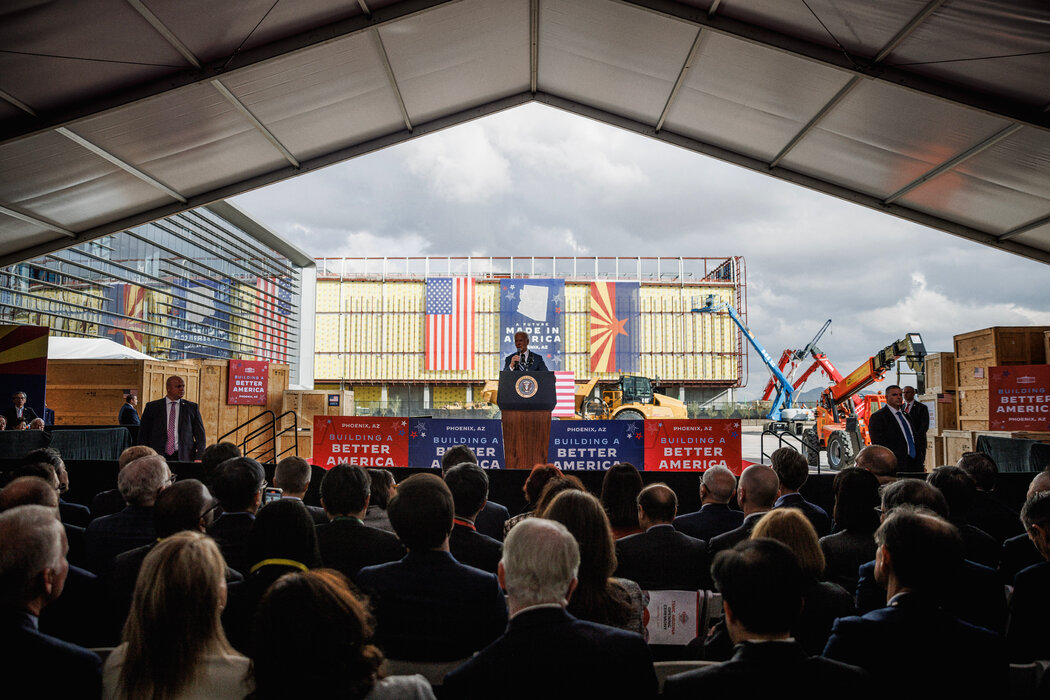美国总统国家安全事务助理沙利文于周二抵达北京,这是他在不到18个月内第五次与中国最高外交官王毅会面。尽管美国外交政策面临不确定性,拜登政府仍寻求进一步深化其对华战略。沙利文计划在会谈中讨论限制芬太尼扩散和扩大高层军事接触等合作问题,并重申美国在台湾问题上的立场以及对中国支持俄罗斯的关切。中国则会提出自己的观点,包括美国对台湾的支持以及美国限制对华技术出口问题。分析人士认为,北京希望美国减轻对华压力,为与下一届美国政府建立更顺畅的关系奠定基础。沙利文的访问可能为拜登与中国领导人习近平最后一次峰会铺路,但也不排除中国政府将重点放在与下届美国政府接触上。
Original Title: Sullivan Visits China, Possibly Paving the Way for Final Biden-Xi Meeting
Summary: Jake Sullivan, the US president’s national security adviser, arrived in Beijing on Tuesday for talks aimed at showing that the US and China can manage their differences, his fifth meeting with Wang Yi, China’s top diplomat, in less than 18 months. The Biden administration is seeking to deepen its strategy on China even as American foreign policy faces an uncertain future. While there’s much to talk about, little agreement is expected. Sullivan is expected to discuss cooperation with China on limiting the spread of fentanyl and expanding high-level military contacts. He will also emphasize American positions on Taiwan and its concerns about China’s support for Russia. China has said it will raise its own grievances, including US support for Taiwan, which it claims as its own, and US restrictions on technology exports to China. Analysts say that Beijing wants the US to ease pressure on China, setting the stage for a smoother relationship with the next US administration. Sullivan is likely to raise the prospect of Biden meeting with Chinese leader Xi Jinping before the end of Biden’s term. (It is unclear whether Sullivan will see Xi during his three-day visit.) Here are some of the issues that Sullivan and Wang are expected to discuss:
* **Taiwan and Ukraine**
A major flashpoint in the US-China relationship is likely to be Russia’s war in Ukraine and China’s increasingly assertive actions toward Taiwan. Sullivan is likely to urge China to reduce its support for Russia. The US and NATO argue that China’s support has helped Russia to continue its war in Ukraine, now in its third year. American officials say that China has bought large amounts of Russian oil and provided Russia with military and dual-use technology that can be used on the battlefield. Beijing is unlikely to abandon Moscow, which is China’s only major power partner in balancing against the US. Chinese officials will seek to criticize US support for Taiwan, which Xi Jinping has threatened to take back by force if necessary. Beijing accuses Washington of promoting “Taiwan independence,” including providing weapons to Taiwan and allowing US and Taiwanese officials to meet.
* **Technology Restrictions**
Sullivan has been defending the Biden administration’s export controls designed to prevent China from getting US advanced semiconductors or microchips that it could use to develop weapons or data processing power that could pose a threat to US national security.
* **Will Xi and Biden Meet Again?**
Sullivan’s visit could set the stage for a final summit between Xi and Biden. Discussions between Sullivan and Wang were key in setting up the Xi-Biden meeting last November. While Biden will serve only one term and his travel has been disrupted by the pandemic, he is likely to be the first US president since Jimmy Carter not to visit China. Biden has visited China before, during a 2011 trip as vice president. That visit was notable for his eating of zhajiangmian noodles and baozi dumplings at a small restaurant in Beijing. If a state visit cannot be arranged, there remains a potential meeting opportunity for Xi and Biden at the APEC summit, to be held in Peru this November.
Of course, China might not be interested in a Biden “lame duck” presidency and could shift its focus to how best to engage with the next administration. In an article published this month in Foreign Affairs, Chinese international relations scholars Wang Jisi, Hu Ran and Zhao Jianwei wrote that the Chinese government believes that the next US administration will be no different, whether led by Trump or Kamala Harris, and that both will be pressured by domestic forces to take a tough line with China. “The Chinese government is preparing for the results of this US election with a high degree of prudence and limited hope,” they wrote.
Original article: https://cn.nytimes.com/world/20240828/sullivan-biden-china-xi/zh-hant/?utm_source=RSS

